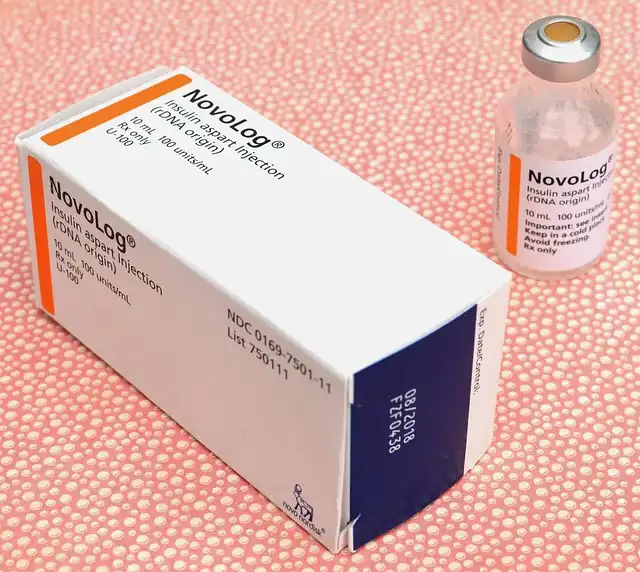FDA Approves Lantidra: Island Transplant for Type 1 Diabetes

Lantidra, an FDA-approved island transplant therapy developed at UIC, offers hope for adults with brittle type 1 diabetes struggling with blood sugar control and hypoglycemia. UI Health performed the first transplant.
This is the very first time in the USA that an island transplant was no longer experimental, rather an FDA-approved clinical treatment. I boast of the research that was done here at the College of Illinois Chicago to create Lantidra with our doctors and our professors.”
While we just use edited and approved web content for Azthena
answers, it may once in a while supply inaccurate responses.
Please validate any kind of information given with the relevant vendors or
writers. We do not provide medical guidance, if you look for
medical info you have to always get in touch with a medical
specialist before acting on any kind of info given.
Physicians at UI Wellness performed the first island transplant with Lantidra, the only therapy accepted by the United state Food and Medicine Management to deal with weak type 1 diabetic issues. Pancreatic island cell treatment is a treatment authorized by the FDA just for grownups with kind 1 diabetic issues who struggle to regulate their blood sugar due to regular episodes of serious reduced blood sugar and hypoglycemia unawareness, or being not able to find that blood sugar is dropping. Individuals with kind 1 diabetes mellitus demand multiple day-to-day insulin injections or an insulin pump because their very own immune system damages the insulin-producing cells of the pancreas. According to the National Institutes of Wellness, even more than 1.4 million people in the United States have kind 1 diabetes mellitus. Roughly 80,000 people have brittle type 1 diabetes, a more serious type of type 1 diabetic issues.
Lantidra: A New Hope for Type 1 Diabetes
Pancreatic island cell treatment is a therapy authorized by the FDA just for grownups with type 1 diabetic issues that have a hard time to control their blood glucose because of frequent episodes of serious low blood sugar and hypoglycemia unawareness, or being incapable to identify that blood sugar level is dropping. Lantidra is derived from a departed donor pancreas. To manage blood sugar, the medication is instilled right into the individual’s liver where insulin is created. Lantidra requires a benefactor match determined by the United Network for Organ Sharing.
How Lantidra Works
News-Medical. Web supplies this clinical information solution in accordance
with these terms.
Please note that clinical info found
on this site is created to support, not to change the relationship
in between individual and physician/doctor and the clinical recommendations they might provide.
Dr. Lorenzo Gallon, clinical supervisor of UI Health’s stomach body organ transplant program and supervisor of transplant study and the transplant lab, stated the island transplants have preserved Augustin’s health.
Augustin’s Experience with Islet Cell Transplants
This is the 3rd time Augustin has actually obtained an islet cell transplant. His first 2 procedures, in 2011, allowed him to live without insulin injections for 12 years. He slipped back in 2023 and once again required insulin injections daily to handle his diabetes mellitus.
“Pancreatic island cell therapy not only assists deal with hypoglycemic unawareness but might likewise help avoid kidney damages brought on by diabetes mellitus if utilized early, prior to difficulties like diabetic person nephropathy create,” he stated.
Benefits of Islet Cell Therapy
Physicians at UI Wellness did the very first island transplant with Lantidra, the only therapy accepted by the U.S. Fda to treat breakable kind 1 diabetes. A 69-year-old guy from Illinois received the therapy on Aug. 26 and consequently had the ability to stop taking day-to-day, life-saving insulin injections. Lantidra appeared solely at UI Health last November.
Augustin was detected with kind 1 diabetic issues when he was 5 years of ages, and he regularly experienced serious low blood glucose and hypoglycemia unawareness. In one circumstances, Augustin recalled, he mistakenly strolled right into a parked ambulance. It was at a hazardously low 10 when paramedics checked his blood sugar.
Lantidra’s Development and Clinical Trials
Lantidra was established via study at the University of Illinois Chicago conducted by Dr. José Oberholzer. The clinical trials that supported Lantidra were conducted at UI Health and wellness, UIC’s scholastic health venture. The professional information was certified to CellTrans Inc., which Oberholzer started and serves as the business’s head of state, to create the therapy for FDA authorization.
According to the National Institutes of Health And Wellness, greater than 1.4 million individuals in the United States have type 1 diabetes mellitus. About 80,000 individuals have brittle type 1 diabetic issues, a much more extreme kind of type 1 diabetes mellitus. The condition can result in loss of sight, kidney failure, arm or leg stroke, heart and amputation attack.
“The benefit of islet transplant is that there is no age limitation. We would never dream of doing a pancreatic transplant on someone Ed’s age, as the risks are too great,” Benedetti said. “With Lantidra, there are no medical risks, and as opposed to being in the hospital for approximately 12 days following a body organ transplant, he was home within 24 hr.”
Kind 1 diabetes mellitus is a chronic autoimmune illness that requires long-lasting care. Individuals with type 1 diabetes need several everyday insulin injections or an insulin pump since their own immune system destroys the insulin-producing cells of the pancreatic. Despite having insulin, they can create life-threatening problems, consisting of damages to the heart, capillary, eyes, nerves and kidneys. The source of type 1 diabetes mellitus is unknown.
1 FDA Approval2 Hypoglycemia
3 Island Transplant
4 Lantidra
5 Type 1 Diabetes
6 UI Health
« Early Alzheimer’s Detection: 3-Minute Brainwave Test (Heater EEG)Medicaid Probes Target Immigrant Healthcare in Democratic States »
